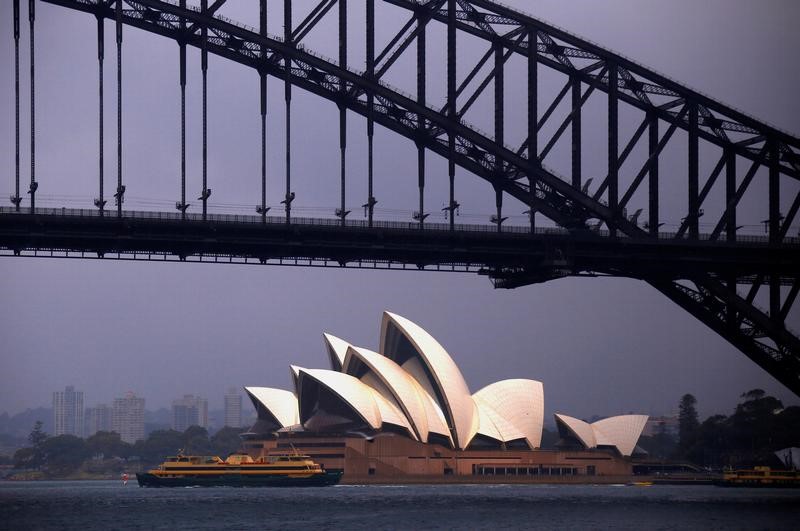Investing.com -- Australia’s trade surplus remained steady in June, data showed on Thursday, as a drop in exports, on softer commodity shipments, was offset by weak imports amid worsening local economic conditions.
Australia’s trade surplus was A$11.321 billion (A$1 = $0.6543) in June, stronger than expectations for a reading of A$11B, but slightly weaker than the A$11.791B seen in May.
The weaker reading was largely driven by a 2% drop in exports, amid easing shipments of coal, mineral fuels, and metals. Cooling commodity demand in China, amid worsening economic conditions in the country, has dented demand for Australia’s top exports. While China is expected to roll out more stimulus measures to support an economic recovery, officials have so far offered scant details on how these measures will be enacted.
Still, Australia’s trade surplus has remained largely steady over the past three months, indicating that there is still some resilience in Chinese commodity demand. The country is Australia’s biggest trading partner, and could still see an economic recovery this year as the government increases spending.
A drop in Australian exports was offset by a 4% decline in imports from May, as rising inflation and slowing business activity weighed on local demand.
While overseas tourism remained resilient, demand for imported retail and capital goods deteriorated substantially through the month, as the Australian economy grapples with high inflation and interest rates.
Consumption goods in particular logged a 12.4% drop in June from the prior month.
Rising inflation and housing costs have battered Australian consumers over the past year, with this trend coming to a head in recent months as retail spending and sentiment slowed sharply.
The Reserve Bank recently said that this weakness in the economy is expected to persist in the coming years, with interest rates set to remain high to combat sticky inflation.
